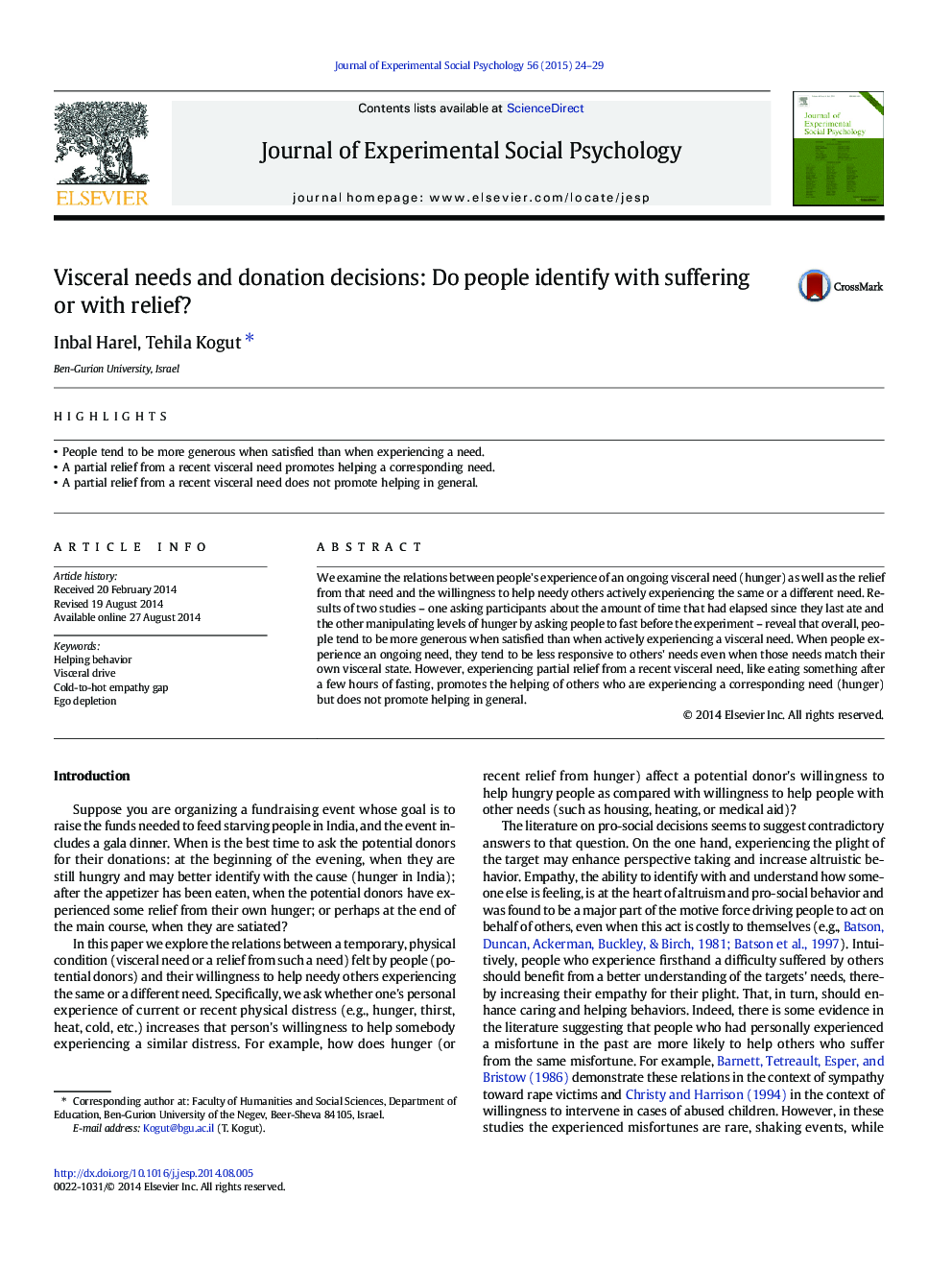| Article ID | Journal | Published Year | Pages | File Type |
|---|---|---|---|---|
| 947721 | Journal of Experimental Social Psychology | 2015 | 6 Pages |
•People tend to be more generous when satisfied than when experiencing a need.•A partial relief from a recent visceral need promotes helping a corresponding need.•A partial relief from a recent visceral need does not promote helping in general.
We examine the relations between people's experience of an ongoing visceral need (hunger) as well as the relief from that need and the willingness to help needy others actively experiencing the same or a different need. Results of two studies – one asking participants about the amount of time that had elapsed since they last ate and the other manipulating levels of hunger by asking people to fast before the experiment – reveal that overall, people tend to be more generous when satisfied than when actively experiencing a visceral need. When people experience an ongoing need, they tend to be less responsive to others' needs even when those needs match their own visceral state. However, experiencing partial relief from a recent visceral need, like eating something after a few hours of fasting, promotes the helping of others who are experiencing a corresponding need (hunger) but does not promote helping in general.
